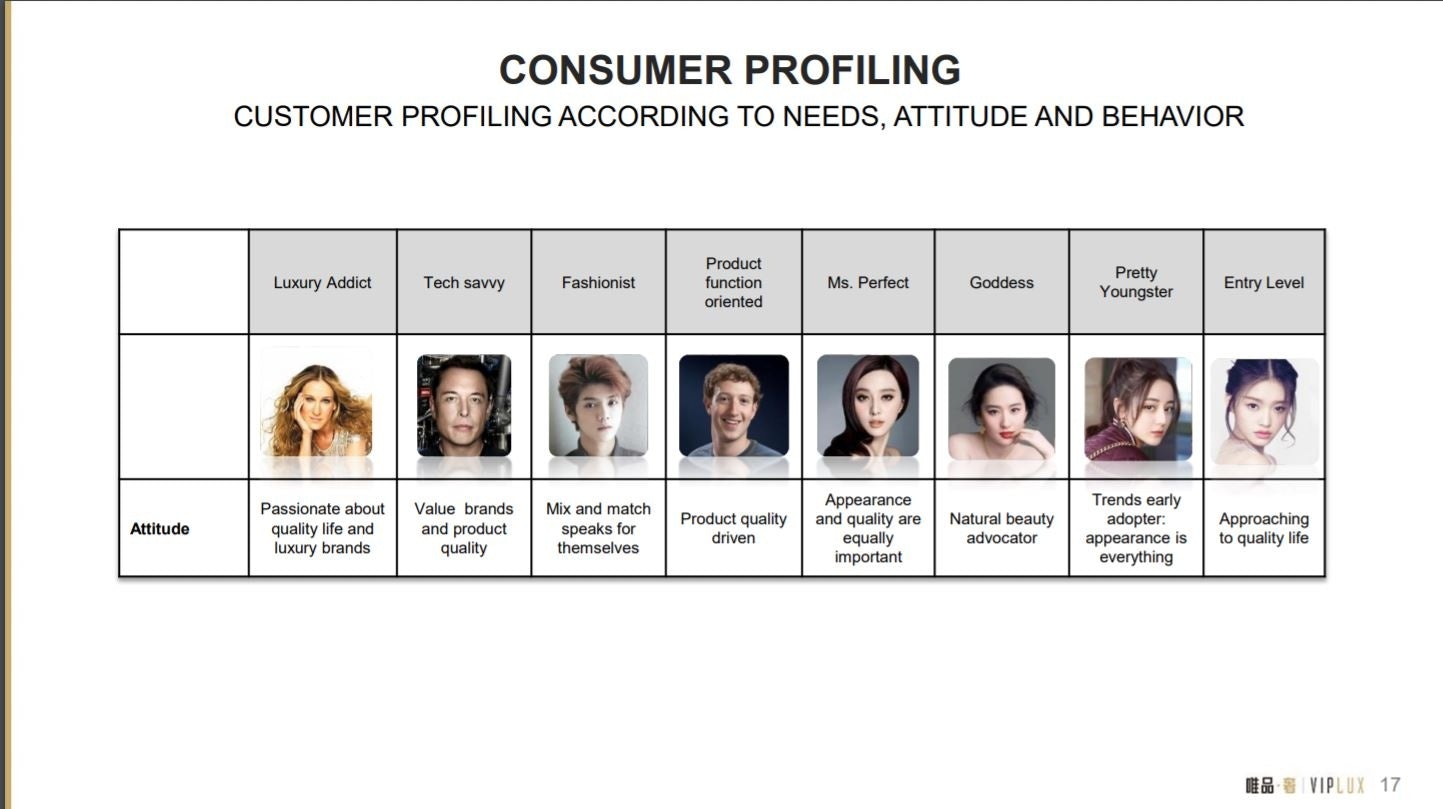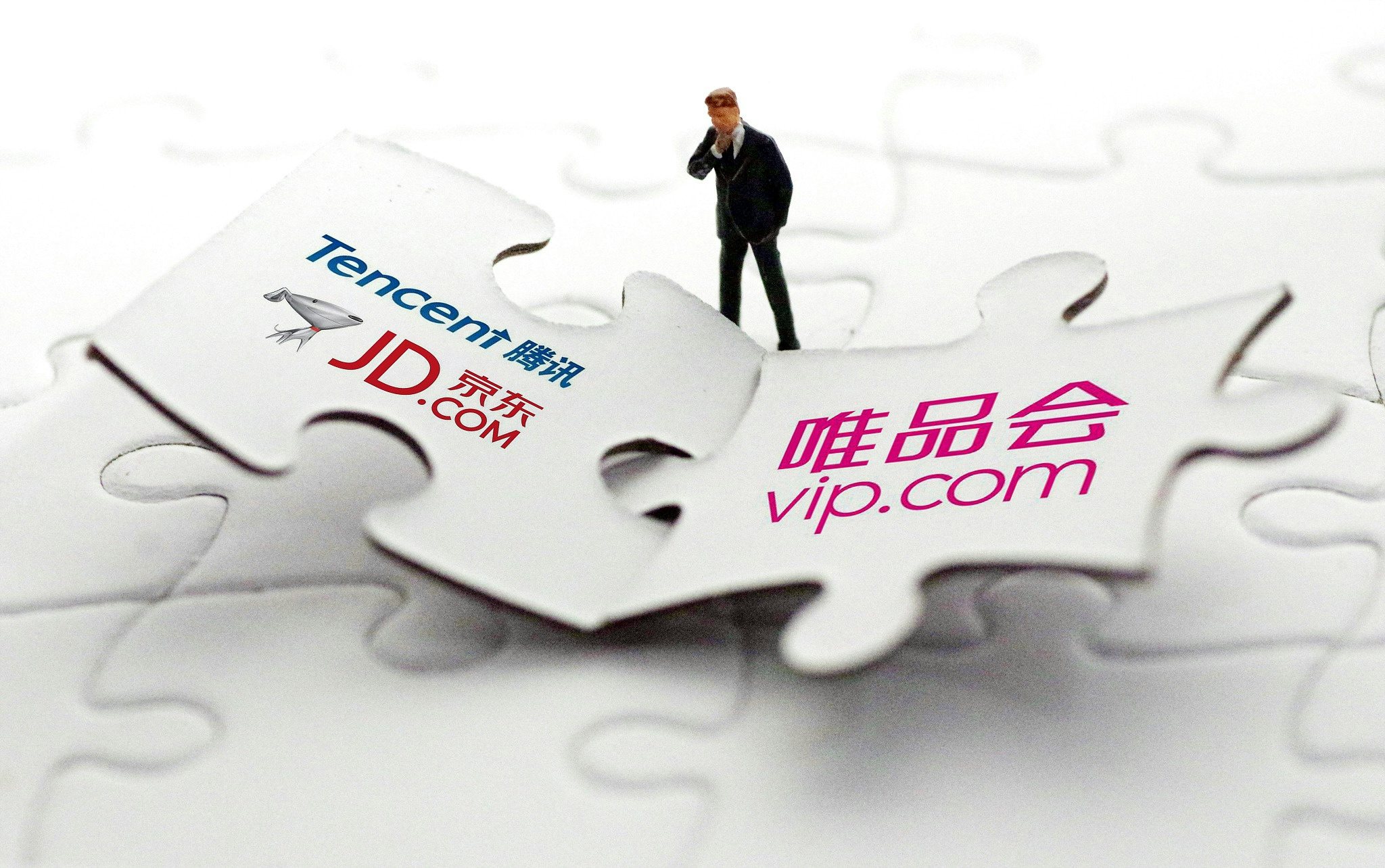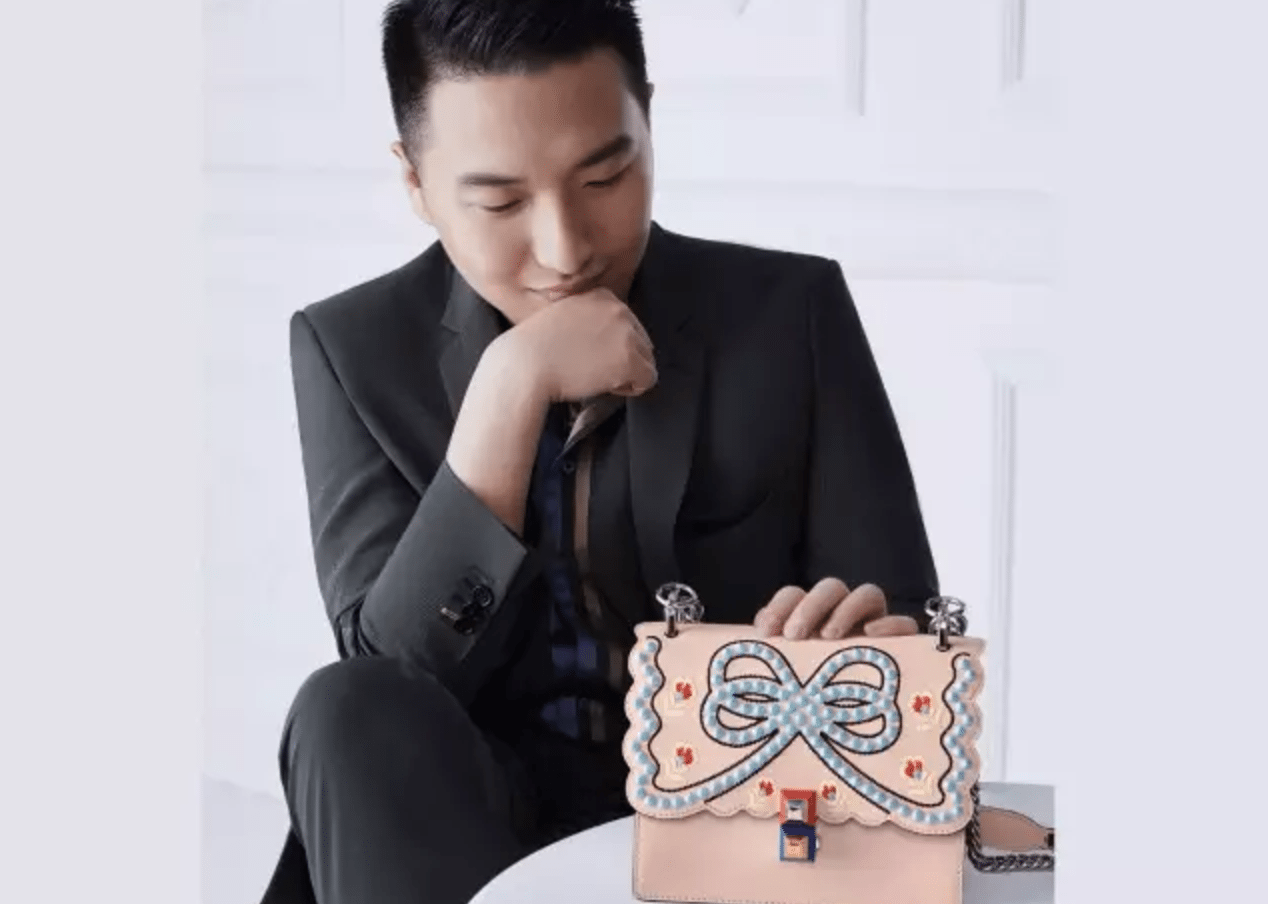China’s Vipshop, one of the leading online retailers, turns ten years old this year, and the luxury and fashion site is celebrating by ramping up its menu of brands and the services it provides to them and to potential buyers. And, in this business, it turns out, it pays off to have powerful friends.
Vipshop is expanding in part fueled by investment—and smart collaborations--from partnerships with China corporate titans JD.com (China’s second-largest e-commerce site) and Tencent (owner of the popular social media app WeChat). The partnerships were a big vote of confidence for the online platform, which has already cut deals with big-name players like Fendi, Salvatore Ferragamo, Versace, Emporio Armani, and Marc Jacobs.
The e-commerce industry in China is booming, and it’s much more common to sell luxury goods via online channels in China than in the West. Because of this, many international luxury brands have partnered with Chinese e-commerce companies over the years to sell their wares, and Vipshop offers international luxury brands an interesting alternative to the country’s leading players.
Here’s what you need to know about Vipshop’s expansion and what some users say may set it apart:
A WeChat advantage#
The two Chinese internet giants JD.com and Tencent poured a combined 863 million into the company late last year. A senior employee of Vipshop told Jing Daily that the partnerships allow Vipshop to provide more resources and WeChat-based services to their luxury brands so they’re able to better target their audience. “We are working closely with Tencent to identify new growth opportunity within the WeChat ecosystem, in particular, developing social commerce,” the employee said. “We are also helping with brand education.”
One significant advantage: WeChat has agreed to let the luxury platform try out some of its new products and features first. “We were among the first batch of users to test the ‘search’ feature, so we could let our clients use it earlier than others,” the employee added. WeChat officially launched the in-app search engine in May, and it’s already boosting the visibility of brands’ official accounts, mini-programs, and articles.
Special services for fashion houses#
Founded in 2008 in Guangzhou, Vipshop quickly established itself with a clear focus on selling fashion and luxury items –unlike its more broadly focused rivals --at discounted rates.
Now, Vipshop is making it easier than some of its rivals do for luxury brands to establish infrastructures in China. Vipshop provides services that help brands manage their sales like WeChat mini-program stores and official Chinese websites (brand.cn).
A good example of this is Fendi. Vipshop created a pop-up store via mini-program for the Italian luxury brand to promote its “FF Reloaded” collection in May, the employee told Jing Daily. Another brand, Salvatore Ferragamo, had its Chinese website run by Vipshop.
A dedicated luxury portal#
With Chinese luxury spending surging, Vipshop decided to add in 2017 an exclusive digital portal selling only high-end goods “Wei Pin She (唯品奢)”.
The tony online luxury store has been operating on three channels: as a website, a mobile app, and a mini-program store on WeChat that mirrors the layout of the app. To assist sales on the mini-program store, Vipshop also has operated an official account on their WeChat.
According to the employee, the WeChat channels—both the official account and mini-program—are more for recruiting new consumers, while the mobile app helps retain the brands’ top-spending luxury consumers.
By the end of 2017, more than 40 brands were operating flagship online stores on this luxury platform.

A female clientele crazy about clothes#
Over the past ten years, Vipshop appears to have amassed a young, highly engaged, and loyal customer base that’s deeply concerned with fashion and luxury. (JD’s clientele, for example, is more male and less clothes-conscious.)
According to statistics provided by Vipshop in July, over 70 percent of the site’s users were born after 1980, with 82 percent of them female. Further statistics show that Vipshop customers live across all of China—not just within the big cities. In 2017, these customers placed a total of 335 million orders and over 95 percent of those orders came from repeat customers, according to the company.
Vipshop customers are also somewhat savvy in their fashion knowledge, as shown in the image above. There are “luxury addicts” who are fully into the “high-quality” lifestyle down to luxury newbies who are just starting to learn about different brands.


